My pal is a New Zealander who’s away to sit his British citizenship test, so he doesnae get the heave-ho later this summer when his visa runs oot.
He has to pass an exam. It’s a sat, formal, 45 minute exam in which he’ll have to answer 24 questions about “British traditions and customs.”
I’ve been helping him study, and it’s been some laugh.
Becoming intentionally British seems like an almost comically unfashionable thing to do.
Just this month the United Ireland-supporting Sinn Fein won the Northern Irish Assembly election.
In May’s Scottish Council Elections, the SNP absolutely blew the other parties out of the water yet again, securing more than double the number of councillors that the Tories managed, and a huge whack more than Labour, too.
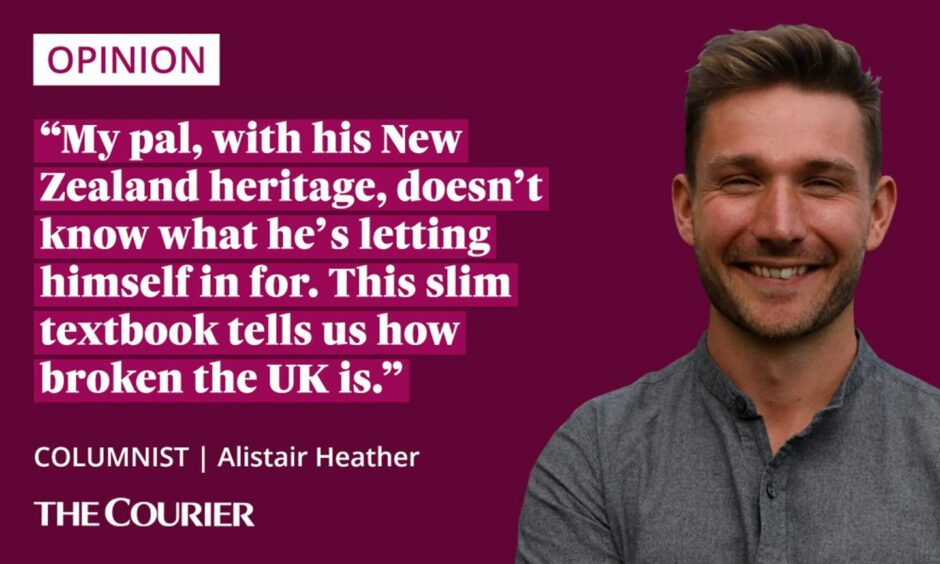
The seams of Britain have sindered.
Trying to become British just as two of the four constituent parts prepare to secede is very much like investing in Sony Minidiscs just as MP3s were taking off.
He’s a polar bear leaping onto a very clearly fissured iceberg.
But if he doesnae pass the test then he’s on the next flight back to New Zealand, where there’s a property crisis raging that makes Edinburgh’s look minor and soluble.
So we’ve passed a good few hours now in his living room, revising.
Reading between the lines
There’s a specially produced textbook that is designed to prepare you for the exam. I’ve been peeling wee scraps out of it and flinging them at him.
“What language did the Mediaeval English kings speak?”
“What is the commonwealth?”
“Are Scottish banknotes legal tender?”
Tried a British citizenship test yesterday, ridiculous questions, one was when was the last Welsh rebellion defeated, very few were relevant to life in Britain. You need 18 out of 24 to pass, I failed and I bet many of us would. Hostile environment still going strong.
— Lady Mme Claire Savage 🇪🇺 #FBPE 🕯🏴 (@csav55) January 17, 2021
I’m interested in the power of history.
Rulers and powerful cliques of all sorts have used it to shape the perceptions of their subjects and those they would influence.
So I took a deep and considered professional interest in the ‘history’ this textbook, and this exam, was foisting upon newcomers to these shores.
But I’m also a carnaptious nationalist who is ever ready to pounce on any perceived slight to the nationhood or reputation of Scotland.
So I took a fine-toothed comb through the book looking for things to be aggrieved at.
And I must say I had tremendous amounts of material to marvel at and be riled about. Just not always from a Scottish perspective.
Scottish history – the tourist tea towel version
There’s a bit of Scotland in there though.
“In 1314 the Scottish, led by Robert the Bruce, defeated the English at the Battle of Bannockburn, and Scotland remained unconquered by the English.”
Quite right. Telt.
Likewise the Jacobite rising of 1745 is dealt with in tremendous brevity.
“[Chairlie and his Jacobites] initially had some successes but [were] defeated by George II’s army at the Battle of Culloden in 1746.”
You’ll genuinely get a better insight into Scotland’s rich international heritage by reading the tea towels in Royal Mile shop windaes.
But it’s not much less useful than the clumsy, misguided dauds of English history in there.
And it’s the migrants to Ireland who will really be disadvantaged if this is their great resource.
Skimming over the Irish experience
The tremendously complex interplay of religion, colonisation, emigration and immigration, oppression and violence that has marked British engagement with the island of Ireland would be hard to capture in a short book.
Could you pass the British Citizenship test? @rocknrolga is here to quiz you (and @MrNishKumar). #LateNightMash pic.twitter.com/3ZuxeDpsO4
— Dave (@davechannel) September 27, 2021
More to the point, it would be hard to have everyone trying to migrate to Britain understand the depths Britain has sunk to in Ireland without discouraging them from coming here at all.
The shelling of Dublin, the troubles, the complete indifference of London politicians to the ongoing crises in Northern Ireland, the tattie famine, the official and unofficial prejudices against Irish Catholics here and there…
On all of these historical insights which underpin the current tumult in politics over there…barely a word.
All that new arrivals to these shores hear of Ireland, and the idea that there might have been some friction between states and peoples, are sentences like “Years of disagreement led to a terror campaign in Northern Ireland and elsewhere”.
Who was involved? Nae idea.
Is it all done with? Presumably.
On Stormont, all the little textbook says is “There is […] a Northern Ireland Assembly, although this has been suspended on a few occasions.”
Oh aye, the government keeps collapsing aye? How come?
‘We Brits are not a people’
My pal, with his New Zealand heritage, doesn’t know what he’s letting himself in for.
This slim textbook – with sample questions below – tells us how broken the UK is.
Nations use stories of a shared history, of a shared language, of a shared future to bind them.
This Home Office text tries to do that. And it fails.
The ‘history’ is in fact a series of unrelated random events.
The shared literature is in fact a multitude of internationalist writers responding to different stimuli.
The book acknowledges we write and speak in Welsh, Scots, Gaelic, Irish, English.
And that we believe in Judaism, Christianity, Islam, nothing.
But we Brits are not a people.
And my New Zealand friend is likely joining a club that will soon be disbanded.
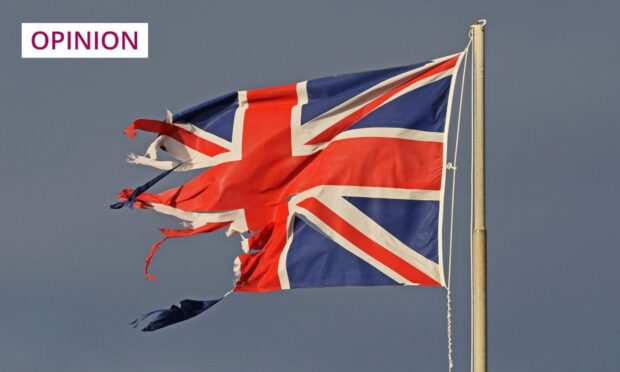
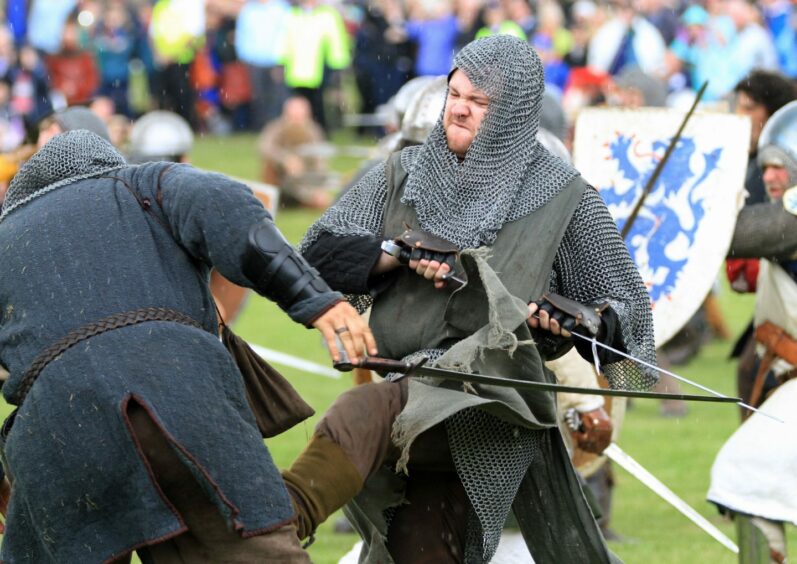
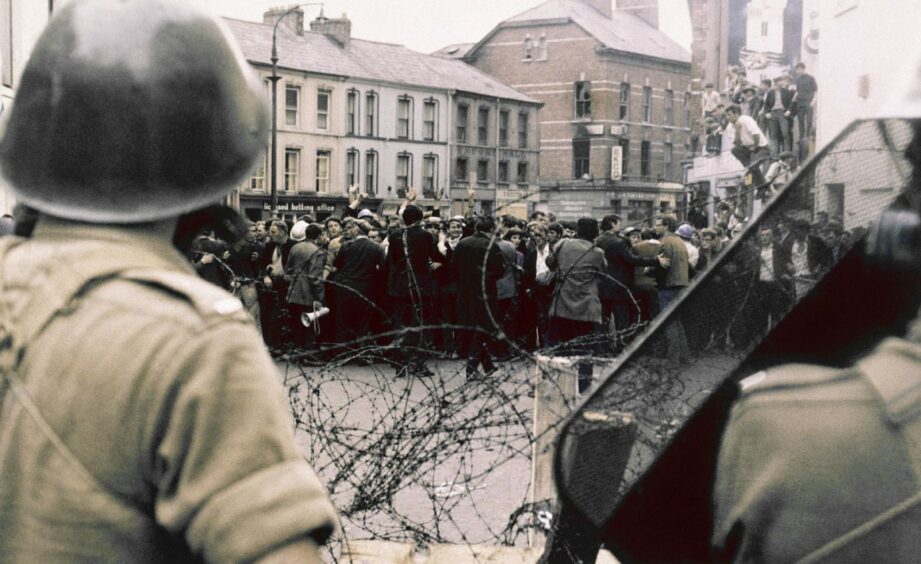
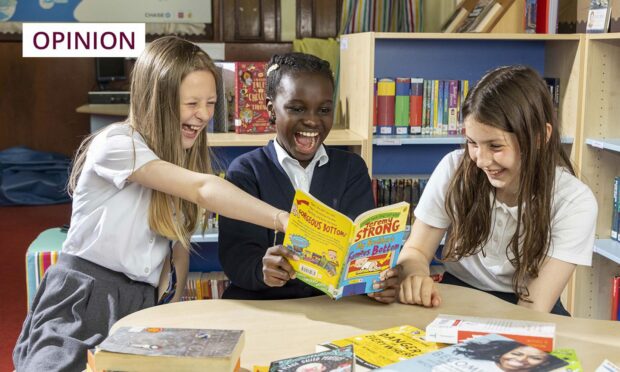
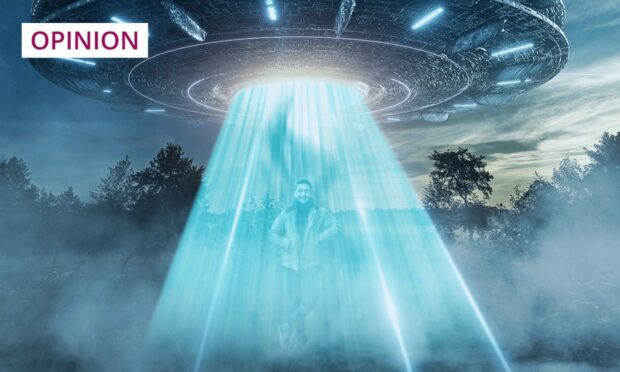
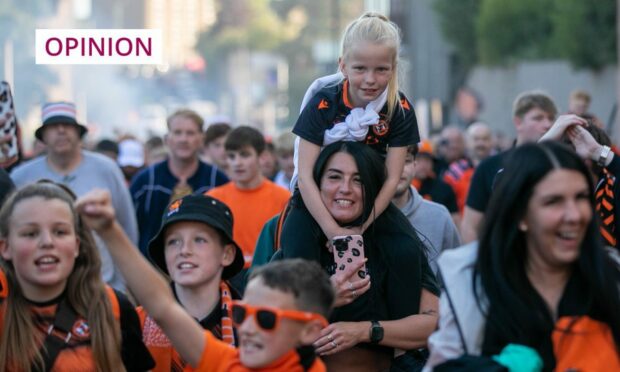
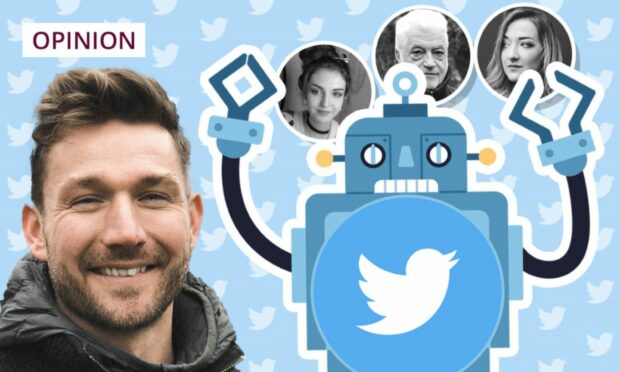
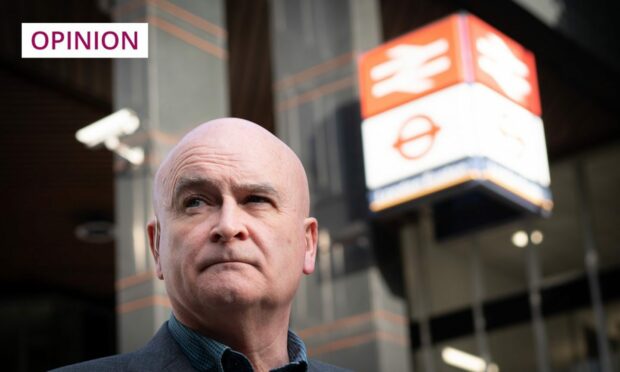
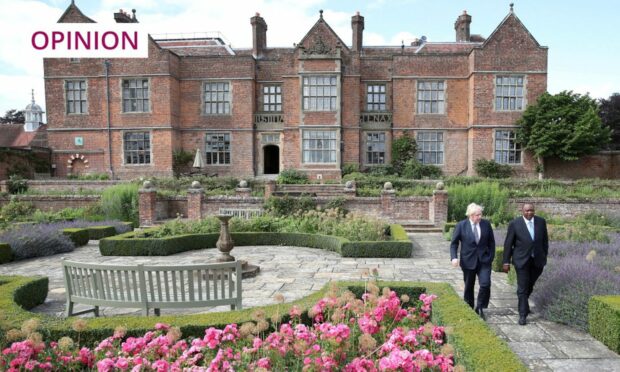










Conversation